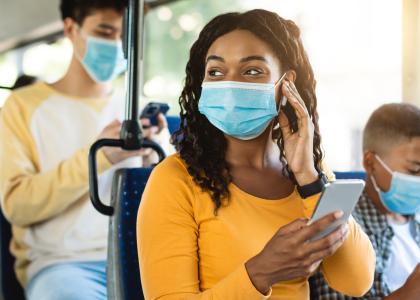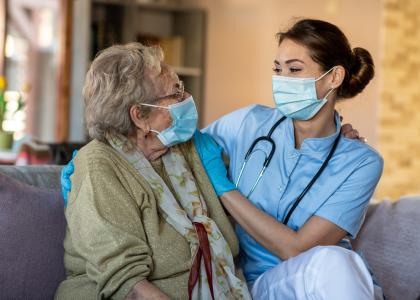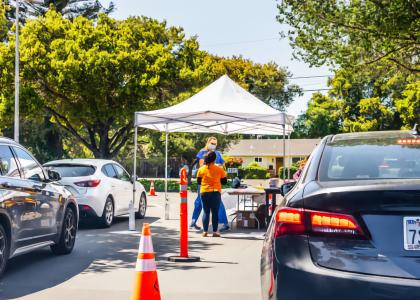NINR
Remote Patient Monitoring of Chronic Disease in Community Health Centers (REDUCE)

The goal of this study is to evaluate the biomedical effects of these RPM interventions, and to gain insights into barriers and facilitators to implementation and adoption of the programs. Our results will inform efforts to ensure that patients in community health centers can benefit from digital RPM interventions and will lay the foundation for large-scale implementation of such interventions.
Digital Technology to Support Adherence to Hypertension Medications for Older Adults with Mild Cognitive Impairment

Mild cognitive impairment (MCI) is characterized by mild impairment in one or more cognitive functions and is associated with an increased risk for failure to take prescribed medications. Hypertension is prevalent among persons with MCI (PwMCI) and nonadherence to medications increases the risk of accelerated cognitive decline through cerebrovascular disease. Adherence is often only 46% or lower among PwMCI.
Transcending COVID-19 Barriers to Pain Care in Rural America: Pragmatic Comparative Effectiveness Trial of Evidence-Based, On-Demand, Digital Behavioral Treatments For Chronic Pain

For people from the rural America with chronic diseases, the pandemic can not only worsen pain, but also it can trigger anxiety, depression, trouble sleeping, and substance use. One way doctors and health systems are reaching out is by video visits, where patients and their providers communicate online via the Internet.
Rural-Urban Disparities In Spillover Effects of COVID-19

This project is focused on understanding the magnitude of COVID’s spillover effects on cerebrovascular disease in rural areas, as well as the impact of key mitigation strategies.
A National Neighborhood Data Resource to Understand Inequities in the Health and Socioeconomic Impacts of COVID-19 in the United States

This project will use the National Neighborhood Data Archive (NaNDA) to identify which communities are most vulnerable to the immediate and longer-term consequences of the pandemic for a host of behavioral, psychological, social, and economic outcomes.
Improving the Collaborative Health of Minority COVID-19 Survivor & Carepartner Dyads Through Interventions Targeting Social and Structural Health Inequities

This study tests the efficacy of a telehealth-enhanced, RN-Community Health Worker delivered dyad intervention, ICINGS FAM, on quality of life, and health-related outcomes in vulnerable African American adults with pre-existing chronic illness and their informal care partners.
A Technological Intervention to Improve Nutrition among Older Adult Congregate Meal Participants during COVID-19

This project extends existing congregate meal programming infrastructure and partnerships with Older Adults Technology Services (OATS) to provide a sustainable approach focused on older adult health.
COVID-19, Vaccinations and School / Community Resources: Children's Longitudinal Health and Education Outcomes Using Linked Administrative Data

This research will examine how significant disruptions to children’s health, education and overall well-being during the COVID-19 pandemic created lasting influence on health, development and social trajectories, and the risk for long-term health outcomes.
Come As You Are - Assessing the Efficacy of a Nurse Case Management HIV Prevention and Care Intervention among Homeless Youth

This project will use qualitative interviews to understand the following information about youth experiencing homelessness (YEH): their knowledge of and adherence to Covid-19 transmission reduction strategies, their mental health symptoms, their rates of having Covid-19 antibodies, and the relation between positive antibodies and adherence to Covid-19 transmission reduction strategies, mental health symptoms, and housing.
Intensifying Community Referrals for Health: The SINCERE Intervention to Address COVID-19 Health Disparities

The objective of this study is to determine whether community service use for those with social needs improves general and COVID-related health outcomes, and whether random assignment to intensive follow-up and collaborative goal setting helps overcome barriers to community service use.